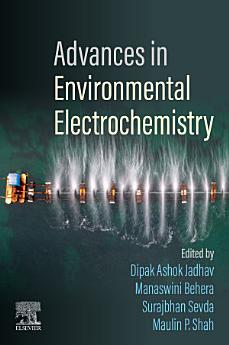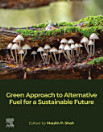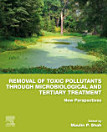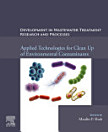Advances in Environmental Electrochemistry
Sobre este e-book
Sobre o autor
Dipak Ashok Jadhav is a research professor at the Korea Maritime and Ocean University, Busan, South Korea. His research interests lie in microbial fuel cells, bioelectrochemical systems, sanitation, bioenergy research, water management, and waste-to-energy. He has received several prestigious awards and fellowship including Young Technological Innovation Award (GYTI), Young Engineers Award, Promising Engineers Award, Swachthon Award from Ministry, DAAD fellowship, Silver medal for post graduate studies at IIT Kharagpur, etc. His research area is microbial fuel cell, Bioelectrochemical system, Sanitation, Bioenergy research, Water management, Waste to Energy recovery. To his credits, there are over 33 papers in various peer-reviewed SCI journals including Renewable and Sustainable energy reviews, Bioresource Technology, Energy, Applied Biochemistry and Biotechnology, etc. and also authored 19 book chapters. He has presented the work at national and international conferences in the area of bioelectrochemical system and bioenergy. He is also serving as editorial board member /reviewers for International Journals and member for several scientific societies in the field of microbial fuel cell and bioenergy research. He is also editor for book on microbial electrochemical system.
Dr. Manaswini Behera is an Associate Professor of Environmental Engineering in the School of Infrastructure, Indian Institute of Technology, Bhubaneswar. She has received her Ph.D. in Environmental Engineering from Indian Institute of Technology Kharagpur and master’s degree in environmental engineering and management from Indian Institute of Technology Delhi. She has received prestigious award like young scientist award. She is the associated editor of the ASCE Journal of Hazardous, Toxic and radioactive Waste. She has published peer reviewed 30 journal papers and 28 international conference presentations and proceedings and 14 refereed book chapters. Her area of research is bioenergy recovery during treatment of industrial wastewater and solid waste in microbial fuel cell, grey water treatment and reuse, developments of separators for bio-electrochemical systems. She has successfully completed three sponsored research projects. She is the principal investigator for the ongoing project, SARASWATI-2.0 (INR 12 million) jointly funded by European Union and Department of Science and Technology, Govt. of India. She is at present supervising five research scholars. She is also editor for the book Microconstituents in the environment: occurrence, fate, removal and management to be published by John Wiley & Sons.
Dr. Surajbhan Sevda, completed Doctoral Degree in 2013 from Indian Institute of Technology Delhi, New Delhi, India. He is currently an Assistant Professor at the Department of Biotechnology, National Institute of Technology, Warangal, India. Prior to this, he was a technical officer (research scientist) at IIT Guwahati, India. He has published more than 28 articles in scientific journals and book chapters. He received his Bachelor of Engineering in Biotechnology and Master of Technology in fermentation technology from University of Rajasthan and Institute of Chemical Technology (formerly known as UDCT), University of Mumbai, India, in 2006 and 2008, respectively. He was a visiting scientist at University of Calgary, Canada in 2018. His research experience lies in the bioreactor design, modelling of microbial growth, biofuels, and bioenergy, life cycle analysis (LCA), metal recovery, biosensor development, green chemistry, microbial electrosynthesis, enzyme and antibiotic production.
Maulin P. Shah is a Microbial Biotechnologist with diverse research interest. His primary interest is the environment, the quality of our living resources and the ways that bacteria can help to manage and degrade toxic wastes and restore environmental health. Consequently, His work has been focused to assess the impact of industrial pollution on microbial diversity of wastewater following cultivation dependant and cultivation independent analysis.








